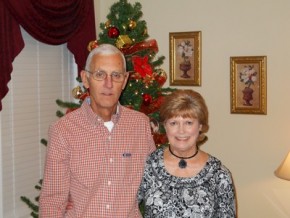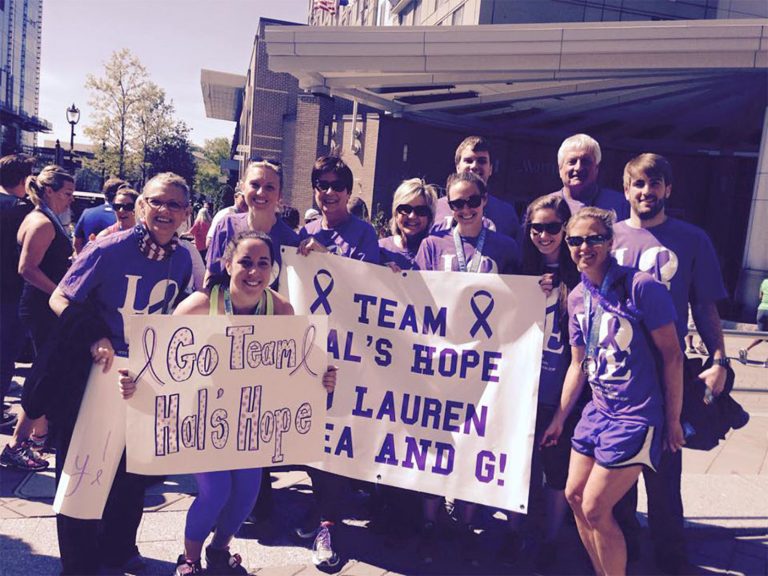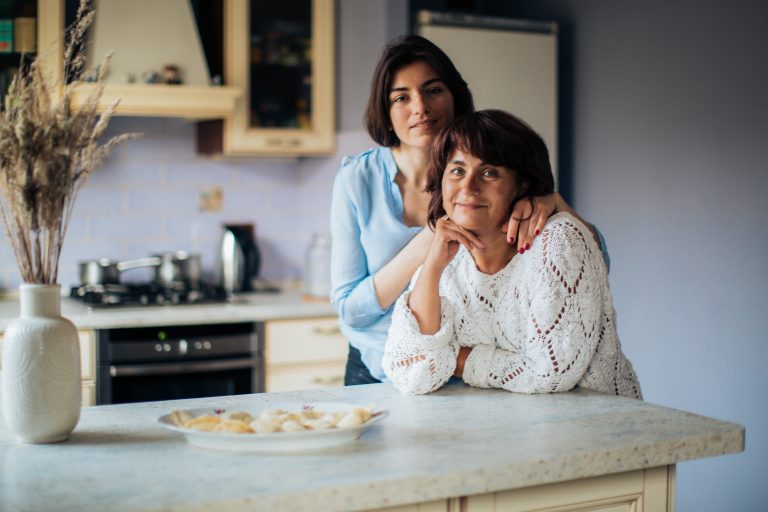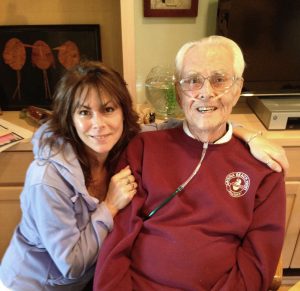Spiritual Well-being and Quality of Life for Patients Undergoing Chemotherapy
Pancreatic Cancer Blog – Commentary on Articles and AbstractsHere is where we take complex medical articles and break them down into language you and I
For over 22 years pancreatica.org has provided current, credible, and comprehensive information to those in need.
Cancer Patient’s Alliance is a 501(c)(3) non-profit organization. All donations are tax-deductible.
94% of all revenue goes towards our programs, with only 6% towards MANAGEMENT AND GENERAL EXPENSES.
Diagnosis – stage, location of tumor, initial prognosis: Stage 1, Head of pancreas, cause undetermined, longevity was not discussed.
Chemo – how long; radio how long (details will be covered later): 6 months chemo [cut short by one or two treatments]. I believe it was 6 weeks of radiation, might have been more. I don’t remember for sure.
Context of your life – where you live, family situation, any other related medical:
Murfreesboro, Tennessee. I was married [and still am] since 1971. I have two daughters which were ages 19 and 22 at that time. I was in perfect health until this. The only history of any cancer in my family was in about 1991-1992. My father had prostate cancer. He passed in Sept. 1994 at age 70.
Medical Journey – Diagnosis – What took you to the doctor in the first place:
After eating one night I started a continual burping. I had severe abdominal pain as if someone was trying to push a broom handle thru me just below where my ribs meet together. After an emergency room visit, one primary doctor visit, a gastroenterologist doctor visit and two weeks of pills I decided something more had to be done. I knew I had a serious problem that wasn’t going away. I also had lost about ten unexplained pounds.
How you were told, how you told loved ones:
By the gastroenterologist doctor after I persuaded him to do diagnostic testing of several sorts. I just told them I had cancer and I was being scheduled for surgery to remove it. My assumption was that it would be removed and that would be the end of that! My wife was present when I was told. Wife told daughters by phone.
When/how you learned “the statistics”:
I didn’t know there was a statistic at the time. I wondered after the third day of asking the surgeon if I was going to live and never getting an answer. Then he told me the last time not to ask him that again. I was just messing with him. I knew then it must be pretty serious. Then the nurses that administered the chemo told me I was lucky to be alive a lot of people don’t live thru the surgery and generally if they do they don’t live very long. Everywhere I went someone was telling me I was a miracle etc. Curiosity got me after 3-4 months and I did my first research on the internet. Big Mistake!
Your initial response to diagnosis, and that of your family/friends:
It was shocking but yet expected on my part. The family was shocked and very concerned probably more so than me. We knew any cancer was serious but we didn’t have a clue about pancreas cancer.
Medical Journey – Treatment
What facility; what primary doctors (the helpful ones!):
Centennial Hospital, Nashville, Tennessee Dr. Howard Rosen [gastroenterologist] Dr. William Polk Jr. [surgeon], and Dr. John Barton [oncologist] at Tennessee Oncology in Murfreesboro, Tennessee
Surgery (if): Whipple Procedure- Removed part of stomach, removed gallbladder, appendix, duodenum and half the pancreas [head]. Re-routed bile duct from liver.
Clinical trials (if):n/a
Chemo/Radiation details:
I don’t recall the name of the chemo drug. It was administered by a syringe into an IV. It was wicked I remember that much! The radiation treatments were administered from four angles, each side, front and back. Both treatments were ended early due to complications.
Experience (physical, emotional):
Both physically and emotionally draining. I was physically fatigued the entire time. Didn’t want to and didn’t feel like doing anything other than sitting in a recliner. Emotionally it seemed like every day was a thousand years. The sickness and nausea was so bad I wondered how anything that felt this bad could possibly help me. I wondered if I could stand it long enough and if I could even live long enough to finish it. With my digestive system already causing so much pain from the surgery then adding the chemo created a real emotional challenge to force myself to eat, which in turn was only going to make me feel worse.
Medical Journey – Recovery and/or Rediagnosis:
In my mind recovery means getting back to normal. With pancreas cancer and the Whipple surgery that is not possible. However it is a manageable life well worth the living! It probably took me the better part of a year to heal from the surgery and settle out my system from the chemo. I had to learn what I could eat and how much to minimize the stress on my digestive system. I also had to learn how many enzyme pills to take to make things work the best. Once this was accomplished I had a manageable life with limits. As far as the cancer is concerned it is gone as of 12 years and 20 days ago today.
Side effects/complications:
My side effects during chemo and radiation were sickness, nausea, diarrhea and fatigue. During these treatments I also got colitis of both small and large intestines. I dehydrated and was hospitalized with both lungs full of blood clots due to radiation. I stayed on blood thinner for 6 months. I am full of scar tissue and adhesions that causes constant pain. I’m in pain when I’m hungry, when I am full, and when I empty myself. I hurt when I sit up, stand, lay down and walk. The only comfortable position is reclining. When my eyes open each morning I am in pain and when I go to bed each night I am in pain. I take a sleeping pill to put me to sleep. This pain is not unbearable as long as I don’t remain in any one position for an extended period of time or try to walk too much. I became diabetic about three years ago and since then it is next to impossible to maintain my body weight and keep my blood sugar level regulated. No matter what I eat it creates pain.
Dietary/exercise:
I am not on any special diet except low carbs for my blood sugar but if I don’t cheat on that I lose weight. I’m stuck between a rock and a hard place on that. I do however have to stay away from spicy and greasy food. These really cause digestive problems. I don’t have an exercise program. I stay as active as I can without over doing myself. I don’t just sit or lay around.
Alternative therapies, if any: n/a
Rediagnosis (if): Cancer free!
Experience (physical, emotional):
I’ll add in here as a continuation from the above regarding emotional experience. As I mentioned in the statistic section I had no idea about survival rates etc. until several months after the Whipple. I researched several major web sites and guess what? I learned I was going to die from this no matter what. I just had the worst known surgery known to man. I had the worst cancer you could ever have. It is the least responsive to “all” treatments etc. I wouldn’t live at best 2-5 years and the cancer would be back to get me. This information put me in a head spin! I wasn’t afraid of dying, I just wasn’t ready to go yet. Needless to say I got depressed. I started seeing a therapist and got another prescription to take. I continued this for a while until I decided the therapist was just babbling around, taking my money and leading me in directions I didn’t want to go. I decided I would suck it up and laugh about the whole Stats program and who was going to win this war. Someone else was going to drive my chariot!
Your Care Team Experience
Medical team:
All the doctors were concerned, compassionate and tried their very best to help me through these tough times except the radiology doctor; she didn’t have a heart. All nurse, staffs and facilities were super.
Primary caregiver(s):
My wife. She was with me every step of the way. She saw to my every need. I could not have made it without her. I can’t say enough, God bless her!
Her name is Kay.
Other family – including children:
My daughters kept a close eye on me. Also my brother and sister.
Friends/neighbors/perfect strangers!:
My neighbor helped me a lot, mowed lawn etc. Friends kept check on me with visits and calls. My two closest friends never let up calling and visiting. They stood out above everyone except my wife. They truly cared and proved it. They kept the loneliness away. Their names are Mark and Bill. I owe them!
Most Helpful Resources
People:
Wife, friends, family, neighbors and church.
Support groups (physical): n/a
Websites/listservs/online communities:
MD Anderson, Mayoclinic.com, John Hopkins.com, Pancreas cancer.com and various others.
Books: Bible [no books on pancreas cancer]
Attitudes: Everyone was real concerned, caring, supportive and encouraging.
Why You “Beat the Odds”
What your doctors would say:
They say I am lucky. They say I am a miracle. They say we must have caught it and removed it before it spread. My primary doctor years ago used to refer to “when it comes back”. He stopped that. I am the longest survivor for all of my doctors and two of them have been in practice for a long time.
What you say:
First, I am going to give God the credit! Next, I am going to take credit. Yes, I was lucky to have the symptoms and pain at an early stage of cancer. However if I had taken the pills as first suggested to eliminate the pain and rest the pancreas as the gastroenterologist doctor referred to it, I would no longer be alive. He admitted that to me later. The first visit I had with him when he came into the examining room he ask how could he help me. I indicated what and where my problems were. Before he examined me I told him I did not come there to get pills that I knew I had a serious problem. I told him I wanted him to find the problem and fix it and if he couldn’t find it to refer me to a surgeon. He questioned and examined me said I probably had pancreatitis. He said he was going to put me on some pills. That’s when I stopped him and I said “doctor you didn’t listen, I told you when you came in the door I wanted you to find the problem and fix it that I knew I had a serious problem. I didn’t come here for pills.” He sent me for testing and the first test indicated I had a mass in or around my pancreas. Then there was more testing etc. He later commended me for my persistence. Other reasons are hope, faith, technology and all the skills of doctors, nurses and caregivers.
I am thoroughly convinced that my ignorance of the statistics and deadly potential of my disease allowed me to face the gruesome surgery and chemo with a far different attitude than if I had known. I believe that was a time when ignorance paid off.
Special Inquiries
Importance of hope:
Hope is very essential. Hope is the fuel that drives the attitude to make you think and do the things that are necessary to preserve your life. Hope in and of itself may not change the outcome but it gives you a much brighter life believing you will overcome your obstacles. It has been proven that what is in the mind effects the body. Without hope there is really no need to start the battle. You will just be facing the doom and gloom of the fight. Yes, I definitely had hope that everything would work out okay.
Importance of humor:
Humor takes the fright out of the unknown. Humor helped me face many things. One for example is each time I am scheduled for a scan to check for recurrence the Sunday before at church I fill out a prayer request card. Then at least one or more of the church elders will say to me, I see you’re going for a scan. My reply is yes I’ve been polishing on my shovel handle. The next Sunday they will ask me how it went and I tell them the doctor told me to put the shovel away. We have a good laugh. I figure I don’t need to get down till it’s time to get down. It will only make life more miserable.
Importance of spirituality:
Spirituality is the most important of all. I believe in God and I am a Christian. I believe we may get knocked back now and again with trials of life but if your heart is right with God it is a win-win situation no matter what. When you can’t lose nothing else matters!
Advice To other patients:
If you’re not right with God, get that way! Believe me, it will make everything okay. Be aggressive toward your disease. Don’t let anyone talk you into dying. Develop a positive attitude with hope. I recommend that you DO NOT [if you haven’t already] research your survival statistics or anything else that may tell you the reactions of this cancer. The reason why is because if you have cancer all of that information doesn’t matter. It will only cause you to have anxiety. That you don’t need. Leave that for the fund raisers and research doctors. Curiosity is hard to overcome. It got the better of me after several months. It did me no good at all. Worrying will not change anything for the better. It can only hurt. All you need to know is that in your body there is something wrong and between God and those doctors they’re going to fix it.
To primary caregivers:
Love them. Do whatever you can to help them maintain a cheerful and positive attitude. Never speak negative about their problem. Never say or do anything to make them think they are a burden. Don’t become overly sympathetic to the point that they become totally dependent on you.
To well-meaning others (family, friends, neighbors):
Don’t ask dumb questions. A simple Hi how you doing then visit etc. just as you would if no one was sick is sufficient. Don’t make remarks like uh I heard that’s a bad one. Talk about it if they want to but don’t aid them in wallowing in it.
How This Journey Changed Your life, and/or other Last Thoughts …
I’ve been retired now for twelve years. I can’t do the things I used to do but I’m happy. I still have pain and digestive issues but I manage them. I have a better perspective of life than I did twelve years ago. A lot of things that seemed to matter then don’t matter anymore. I am more spiritually minded now and my priorities have changed to the things that matter more. I don’t take as much for granted now and I don’t worry over the things I cannot change.
Too much information is not good for someone with pancreatic cancer. It makes it too easy to give up!
Before I had the Whipple, I didn’t know what it consisted of. The doctor didn’t tell me nor did I ask or research it. He did however tell me he was going to do a Whipple procedure on me. I assumed he would make a small incision and just remove the cancer from the pancreas. I woke up to find out differently! To be honest with you I’m glad I didn’t know. It would have only scared the wits out of me.

James Abbruzzese, MD Chief, Medical Oncology Duke University
Markus Büchler, MD Chairman, Surgery Heidelberg University, Germany
Ralph Hruban, MD Director, GI / Liver Pathology Johns Hopkins University
Eileen O’Reilly, MD Associate Director for Clinical Research – Memorial Sloan-Kettering Cancer Center
Margaret Tempero, MD Chief, Medical Oncology University of California at San Francisco
All DONATIONS are tax-deductible
Our Philosophy About Pancreatic Cancer
Pancreatic cancer is a serious disease. Taking an aggressive rational stance at the earliest possible time, supported by the best medical team, and treated in the most appropriate manner gives the best chance for survival.
We believe in strong patient-physician bonds, scientifically-based treatment, and that comfort can come from knowing that everything that reasonably can be done – is being done.
That the best approach is meeting cancer of the pancreas head-on and armed with the best available information.

Regular giving can be an opportunity to pay tribute in honour of a loved one. Your monthly gift will go directly to promoting awareness, increasing education, furthering pancreatic cancer research aimed at early diagnosis and, helping patients and families impacted by the effects of pancreatic cancer.
Simply select “Monthly” after choosing the amount you would like to give on the donation form.

Most of our fundraisers, supporters, and volunteers, have been in one way or another, personally effected by this disease. We want to acknowledge what hardships you may have gone through (or are currently facing) and sincerely thank you for visiting our site!
Join us in our effort to fight pancreatic cancer. Donations go directly to promoting awareness, increasing education, furthering pancreatic cancer research aimed at early diagnosis and, helping patients and families impacted by the effects of pancreatic cancer. All Donations are tax-deductible.

Making IMPACT for Pancreatic Cancer Together!

MONTHLY MEMORIAL GIFTS:
Support Pancreatic Cancer Research!
Regular giving can be an opportunity to pay tribute in honour of a loved one. Your monthly gift will go directly to promoting awareness, increasing education, furthering pancreatic cancer research aimed at early diagnosis and, helping patients and families impacted by the effects of pancreatic cancer.
Simply select “Monthly” after choosing the amount you would like to give.
Cancer Patients Alliance is a 501(c)(3) non-profit. Initiatives include, ToFightCancer.com and Pancreatica.org. All Donations are tax-deductible.
Pancreatic cancer is expected to become the 2nd leading cause of cancer-related death by the year 2020. There are many reasons why the outcome for pancreatic cancer patients is much bleaker than for most other cancer types. There are no reliable methods to detect the disease early, and there are very few effective treatment options.
| There remains a dire need for more research and an increase in focused funding for pancreatic cancer. Your Donation will go directly to promoting awareness, increasing education, and furthering pancreatic cancer research aimed at early diagnosis. |
This year an estimated 57,600 Americans will be diagnosed with pancreatic cancer. Approximately 47,050 Americans are expected to die from the disease. There are many reasons why the outcome for pancreatic cancer patients is bleaker than for most other cancer types. There are no reliable methods to detect the disease early, and there are very few effective treatment options. Which is why we are so focused on supporting research for early diagnosis.
Together with You our Mission is to promote awareness, increase education, and further pancreatic cancer research aimed at early diagnosis.


CREATE YOUR OWN FUNDRAISER FOR PANCREATIC CANCER !
Create your own fun, choose something you already love to support pancreatic cancer! Simply set up your participation page, include the details of your fundraiser on your page, and get the word out!
Shop to Support Pancreatic Cancer !
Amazon donates 0.5% of the price of your eligible AmazonSmile purchases to help fight pancreatic cancer!
AmazonSmile is the same Amazon you know. Same products, same prices, same service. Simply use our Link to start shopping!
Best of the Pancreatic Cancer Blog
Pancreatic Cancer Blog – Commentary on Articles and AbstractsHere is where we take complex medical articles and break them down into language you and I
Pancreatic Cancer Blog – Commentary on Articles and AbstractsHere is where we take complex medical articles and break them down into language you and I
Pancreatic Cancer Blog – Commentary on Articles and AbstractsHere is where we take complex medical articles and break them down into language you and I
This study is basically looking at whether aspirin can make a chemotherapy drug called gemcitabine work better for pancreatic cancer. You’ve probably heard of aspirin; it’s the stuff you take for a headache or fever.
© 2024 Pancreatica. All rights reserved | Privacy Policy
312 Fountain Avenue, Pacific Grove, California 93950 | Phone: (831) 658-0600 | Fax: (831) 658-0518 | participate@tofightcancer.com